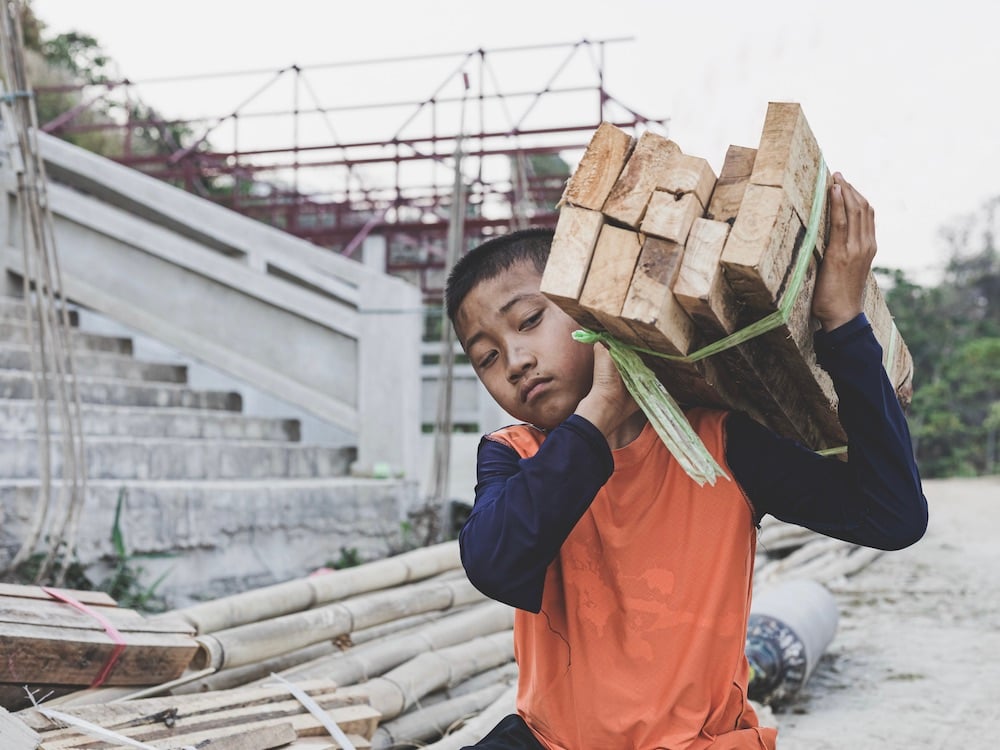Few people want to buy goods made with forced labour. But given that most of the goods we consume are produced through international supply chains, it’s hard to avoid. We often do not know how these goods are made and how the people making them were treated.
Brands at the top of the chain enter into contracts with a myriad of contractors and suppliers located in countries where labour standards are low, weakly enforced or both. Little wonder there are repeated reports about forced labour making it into cocoa from the Ivory Coast and Ghana, palm oil from Indonesia, medical gloves from Malaysia and consumer goods that come from the Xinjiang region of China where the Uyghurs are repressed.
The Liberal government has thrown its support behind Senate Bill S-211, the Fighting Against Forced Labour and Child Labour in Supply Chains Act. It is one of four similar bills before Parliament but it is as some suggest a modest proposal. The bill should be strengthened if it is to have any hope of success.
The legislation would force large Canadian companies to disclose any efforts taken to identify, eradicate or mitigate forced labour in their businesses and supply chains.
It is modelled after the U.K. Modern Slavery Act. The idea behind S-211 and its U.K. model is to shine a light on corporate practices so consumers and investors can punish those companies that do not do enough to combat child and forced labour. Supporters of Bill S-211 acknowledge that it is only a first step. It does not require companies to do anything to detect, eliminate or mitigate forced or child labour — but only to identify areas where they might exist.
By contrast, Canada’s most recent legislative proposal, private members bill Bill C-262, would take the next step. It would require companies to take care to prevent forced and child labour in their businesses and supply chains, and to mitigate any risks of it occurring.
This proposal is modelled after mandatory human rights due-diligence laws that have been adopted in France, Germany, Switzerland and Norway. The forthcoming European Union directive on corporate sustainability due diligence is also expected to follow this model. It would require companies doing business in the world’s largest single market to do something to prevent forced and child labour.
Despite parliamentary committee reports, government consultations and the initiatives of other comparable countries, Canada has been slow on the uptake. The Liberal government has not introduced even modest legislation imposing reporting obligations on Canadian businesses. This is perhaps why the Modern Slavery Act supporters have described it as a first step. They know how weak the bill is compared to what is needed.
Without significant amendments, it isn’t going to address the problem of forced and child labour in supply chains.
There is a growing awareness that the use of disclosure legislation has not produced tangible results. First, reporting has tended to be superficial. Second, the requirements do not reach the segment of supply chains where the worst human rights abuses occur. Third, corporations can comply with legislation without changing corporate practices that are clearly tied to human rights abuses. Further, there is no evidence that disclosure laws can be used as a stepping-stone towards more robust due-diligence legislation. None of the jurisdictions that have made the first step have taken a second.
At best, disclosure laws raise awareness of the problem. At worst, they are a form of window dressing in which reporting substitutes for remedial action.
The time is now to press Labour Minister Seamus O’Regan on his government’s commitment to strengthen Bill S-211. In fact, the government has a clear model on the table, Bill C-262, as a good example of mandatory due-diligence legislation.
To have any real chance of tackling child and forced labour in supply chains, the Canadian law must:
- Impose a broad due-diligence obligation on companies to detect, prevent and mitigate forced labour in their business and supply chains;
- Require companies to consult stakeholders who might be affected by the definition and implementation of the due-diligence measure;
- Oblige companies to establish or participate in effective operational-level grievance mechanisms involving workers and trade unions at every link in the chain;
- Provide access to a civil remedy for victims;
- Establish a public supervisory agency.
The time has passed for modest first steps. Simply requiring companies to report is not enough. It is time to make them act and require them to exercise due diligence in addressing the problem of child and forced labour in their businesses’ supply chains. ![]()
Read more: Rights + Justice, Federal Politics, Labour + Industry
















Tyee Commenting Guidelines
Comments that violate guidelines risk being deleted, and violations may result in a temporary or permanent user ban. Maintain the spirit of good conversation to stay in the discussion.
*Please note The Tyee is not a forum for spreading misinformation about COVID-19, denying its existence or minimizing its risk to public health.
Do:
Do not: